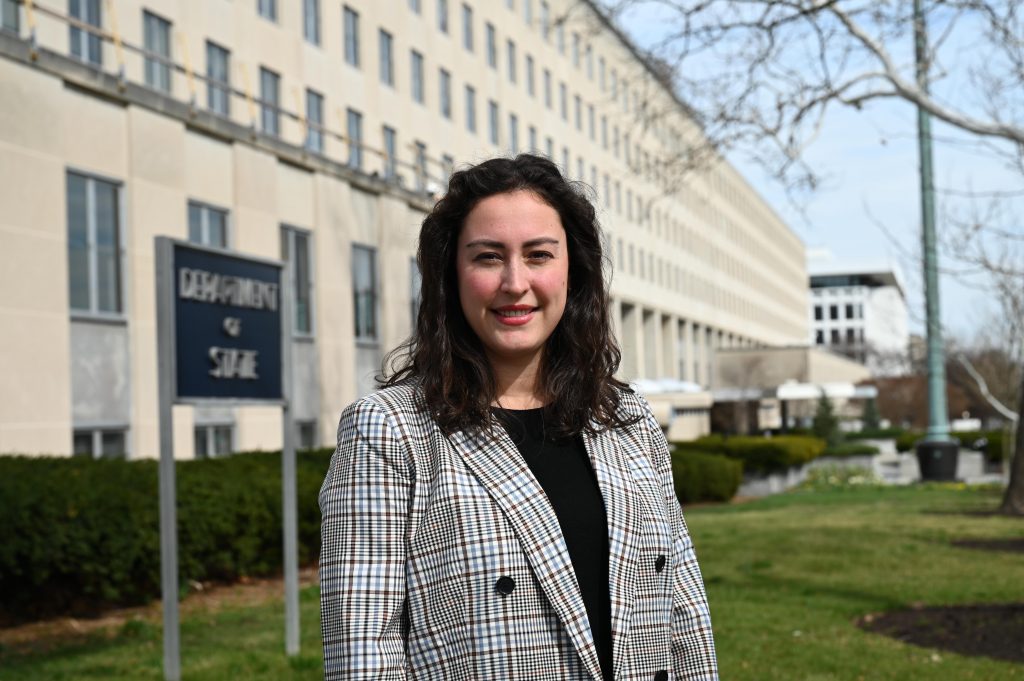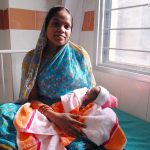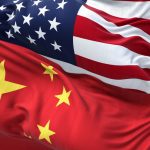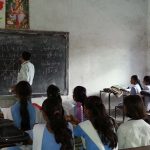Rachel Gagnon MGA '21 is a Presidential Management Fellow at the US Department of State in Washington, DC. In her work as a program analyst for the US State Department’s Bureau of European and Eurasian Affairs, Rachel coordinates foreign assistance to Eastern Europe and Central Asia.
As a master of global affairs student, Rachel worked as a research associate with the Notre Dame Reparations Design and Compliance Lab, housed at the Keough School’s Kellogg Institute for International Studies. In this role, she worked with Keough School faculty Diane Desierto and Aníbal Perez-Liñan to create a database that tracks recommendations made by the World Bank to its project teams. Rachel also was part of a team of students who created an index to analyze the presidential transition processes following the 2020 election in the United States.
Rachel recently spoke to the Keough School about her work with the State Department and reflected on her most valuable experiences in the Master of Global Affairs program.
Q: What are your primary responsibilities in your role at the State Department?
A: I coordinate foreign assistance to Europe and Eurasia. My portfolio is focused on gender and health. This means I work with US agencies in Washington, US embassies overseas, and other donors to ensure that US health and gender assistance programs throughout Europe, Eurasia, and Central Asia are effective and managed well.
As a Presidential Management Fellow I am required to complete two rotations of varying length to different US government positions to gain a broad perspective on the work of the State Department. Most recently I worked for the Central Europe office as the desk officer for Slovakia. In this role I served as the first point of contact for the US Embassy in Bratislava, Slovakia’s capital, and also for the Slovak Embassy in Washington.
Q: What aspects of your work are most enjoyable and what aspects do you find most difficult?
A: I find that the most difficult parts of my work are also the pieces I find most enjoyable. Foreign policy work is always changing and requires you to be adaptable, resourceful, and curious. Every day I am assigned tasks I have never handled before that require me to use all my available knowledge and skills. It is both extremely challenging and rewarding.
Q: What are the most valuable lessons you have learned so far?
A: The most valuable lesson I have learned is the importance of staying curious. The world is constantly evolving and when working in foreign policy it is important to continually follow along. Reading the news every day and staying on top of current events is critical, as is learning from history. I subscribe to podcasts, watch documentaries, read the news, books, and journal articles—all to learn about things happening in the world. And then I go out and I listen to and speak with experts, colleagues, my friends and family members and I gain nuanced, richer perspectives. Learning in international affairs isn’t a linear process— it’s a state of mind. It’s about listening to the information around you, seeking out reliable sources, and caring enough to ask questions. I have found that I thrive in this space of constant learning.
Q: How did the Keough School help you in launching your career? Which experiences were most valuable?
A: I am very grateful to the Keough School for all it has done to help launch my career. The opportunities and resources that were available to me were extraordinary. I was able to take classes that focused on my specific interests including international human rights law, modern Europe, and US public policy. I was able to hold two research positions with renowned Keough School professors Anibal Perez-Linan, Diane Desierto, and Denis McDonough. The combination of academic rigor and practical work experience prepared me to reach the position I have today.
Q: How would you describe the Keough School to a prospective student?
A: The Master of Global Affairs is a program that adapts to each individual student’s needs. The Keough School is invested in ensuring that each student gets what they need from their educational experience. Professors are interested in getting to know students and are willing to engage with them regularly outside of the classroom to create work opportunities and build community.
Q: What is your favorite memory from your time at the Keough School?
A: I traveled to Berlin to study European refugee policy and resettlement for a class offered by the Keough School’s Nanovic Institute for European Studies. We met with government agencies, nongovernmental organizations, multilateral institutions, and community groups. The trip gave me an appreciation for the complex, nuanced role each of these groups play amid global challenges. Each group has its own strengths, weaknesses, resources, and constraints, and all are critical in ensuring that those seeking asylum have access to basic services. The opportunity to travel and speak to people in person was invaluable and the lessons I learned on this trip will influence my work for a long time.



